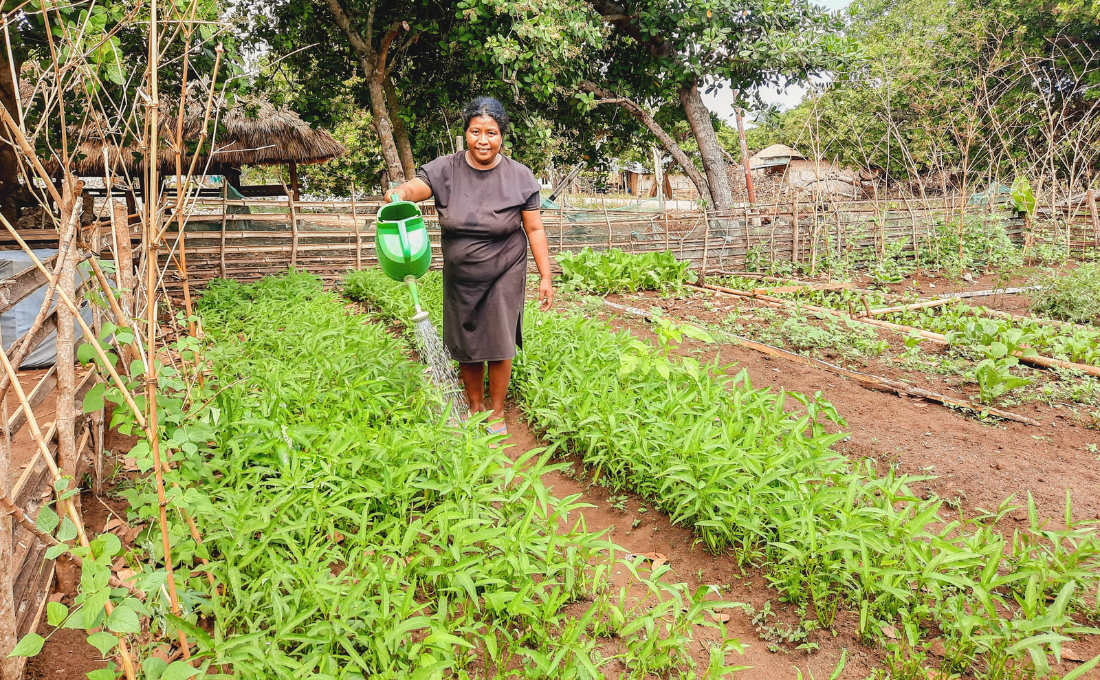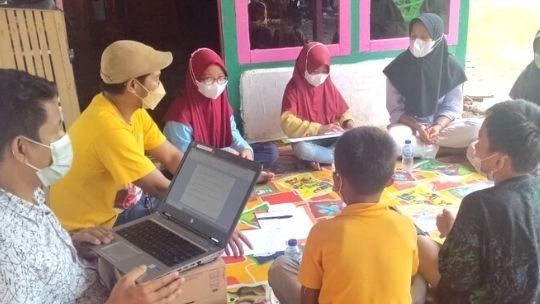Cultivating Change for Food Security and Child's Nutrition

Why nutrition garden is a must? Because it bring nutritious and balanced meals more accesible to children and families. Gardening is already a familiar practice for many rural communities. People in these areas possess the necessary skills for cultivation. Now, especially parents of under five children in villages, are applying these skills to small plots of land in their backyards to grow vegetables. The primary goal is not to generate income but to provide a daily source of food for their families.
In a village in Sumba Barat Daya Regency, East Nusa Tenggara, families once struggled to access vegetables. Adriana, a mother from the village, described the difficulties of finding vegetables. Not only were they hard to come by, but the variety was also limited. "We only picked sweet potato leaves, pumpkin leaves, and long beans from the garden. Those were the only vegetables planted. Those were the only ones we cooked. Sometimes we didn't pick any vegetables because the garden was too far away," said the mother of four. These few vegetables were usually only available during the rainy season. During the dry season, there were hardly any vegetables to consume.
A balanced diet is essential for children's growth and development, especially for Adriana's young children. Despite these challenges, the prevalence of stunting in Sumba Barat Daya was 32.37% as of February 2024, indicating a concerning trend. Limited access to nutritious food, both in terms of quality and quantity, is a major contributing factor to the rising number of stunted children.
Nutrition gardens have provided Adriana and her family with access to a diverse range of nutrient-rich foods. "When the vegetables are ready to harvest, we don't need to buy any more. We cook vegetables from our own garden. This has changed our household. We don't spend money on vegetables, and our children are healthy and gaining weight," she said.
Currently, the WVI operational office in Sumba Barat Daya is supporting the development of nutrition gardens in five villages. These gardens have been made possible through the cooperation of the community, local government, and WVI. "WVI provided various vegetable seeds for us to plant. We made bokashi compost with the guidance of WVI and the Agriculture Department. We, the villagers, made planting beds for the vegetables," explained Adriana.
Nutrition gardens can also be an alternative source of income if the harvest exceeds the family's consumption needs. The proceeds from selling vegetables can be used to buy other household necessities such as rice, fish, toiletries, and so on. However, the primary purpose of nutrition gardens is to strengthen food security among families and improve access to nutritious food for children in Sumba Barat Daya.
Author: Herlin Day Mapar (Program Coordinator in South West Sumba Area Program)
Editor: Mariana Kurniawati (Communication Executive)



